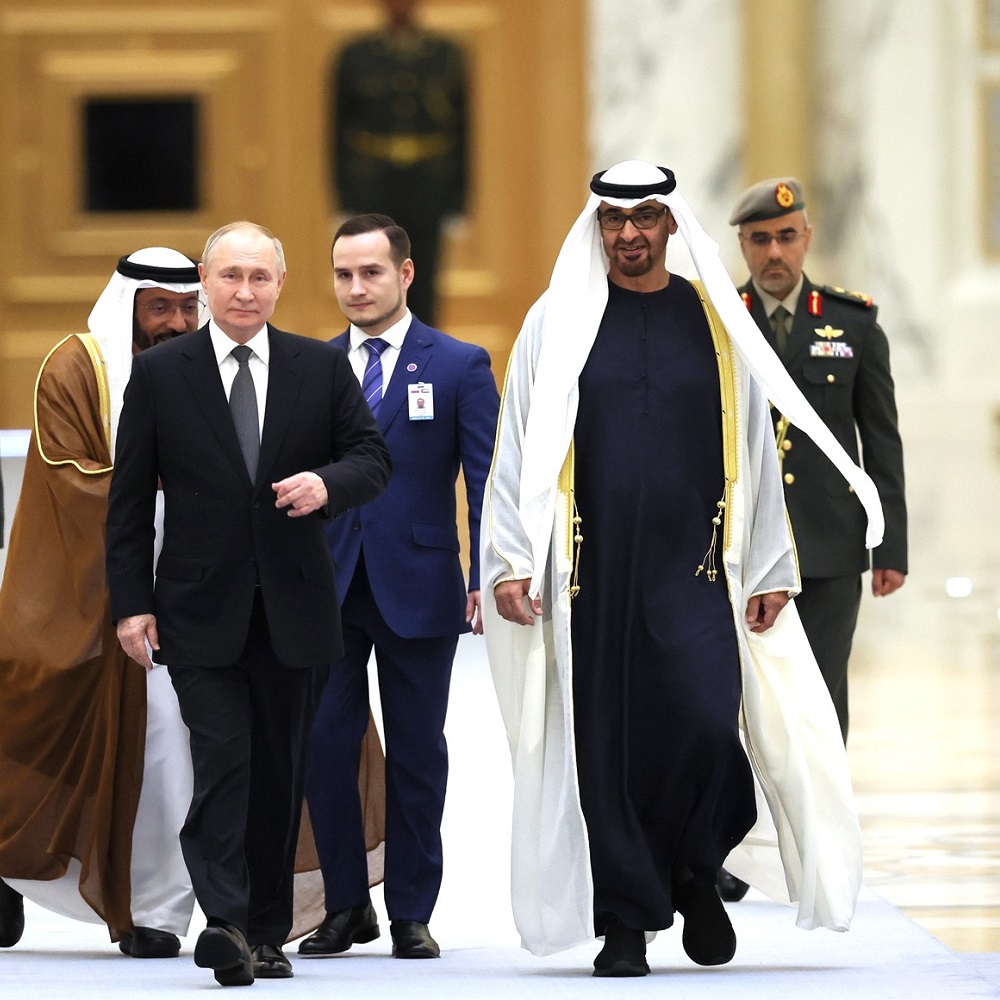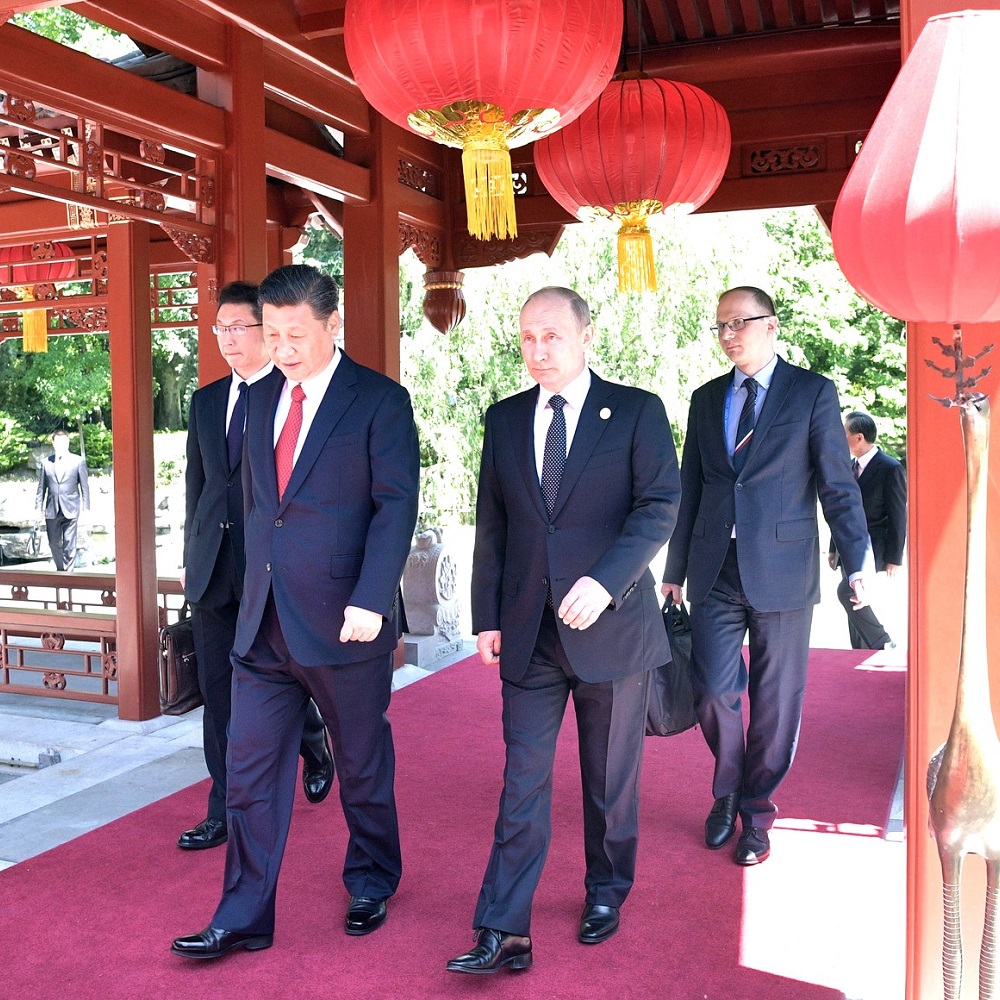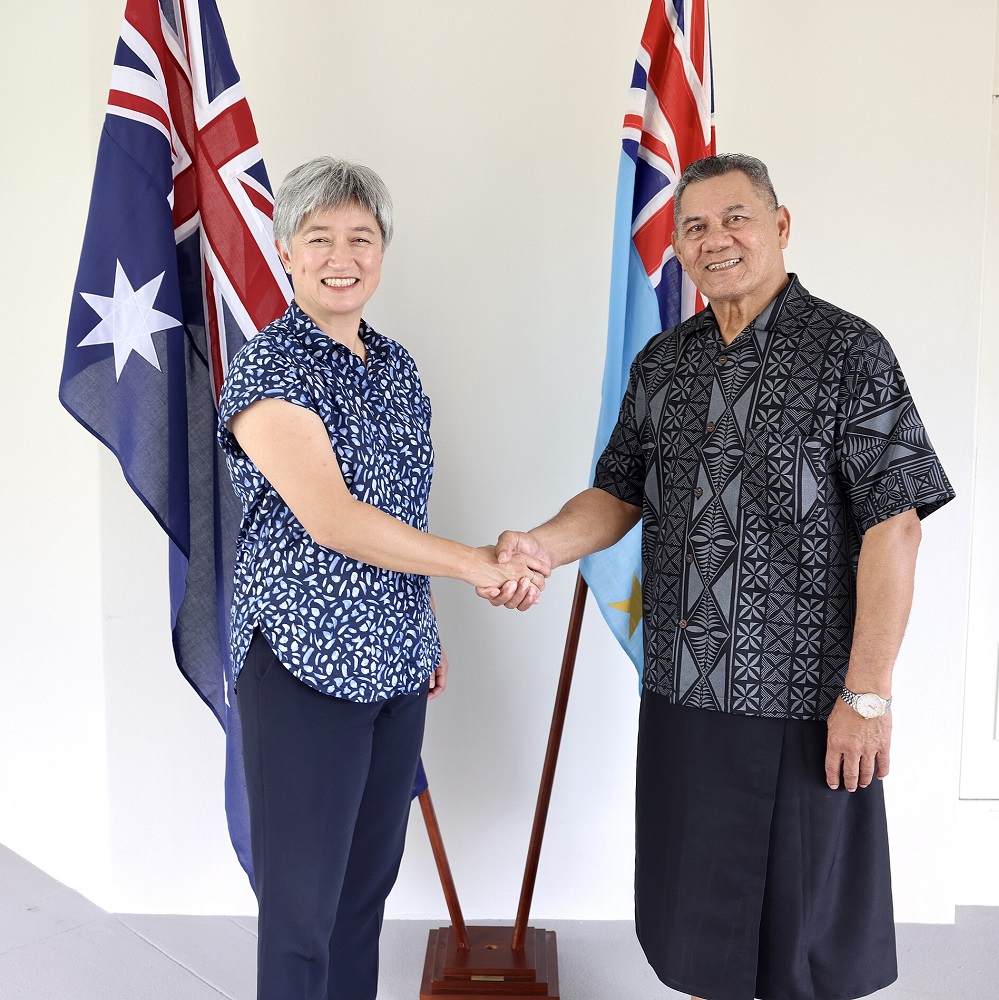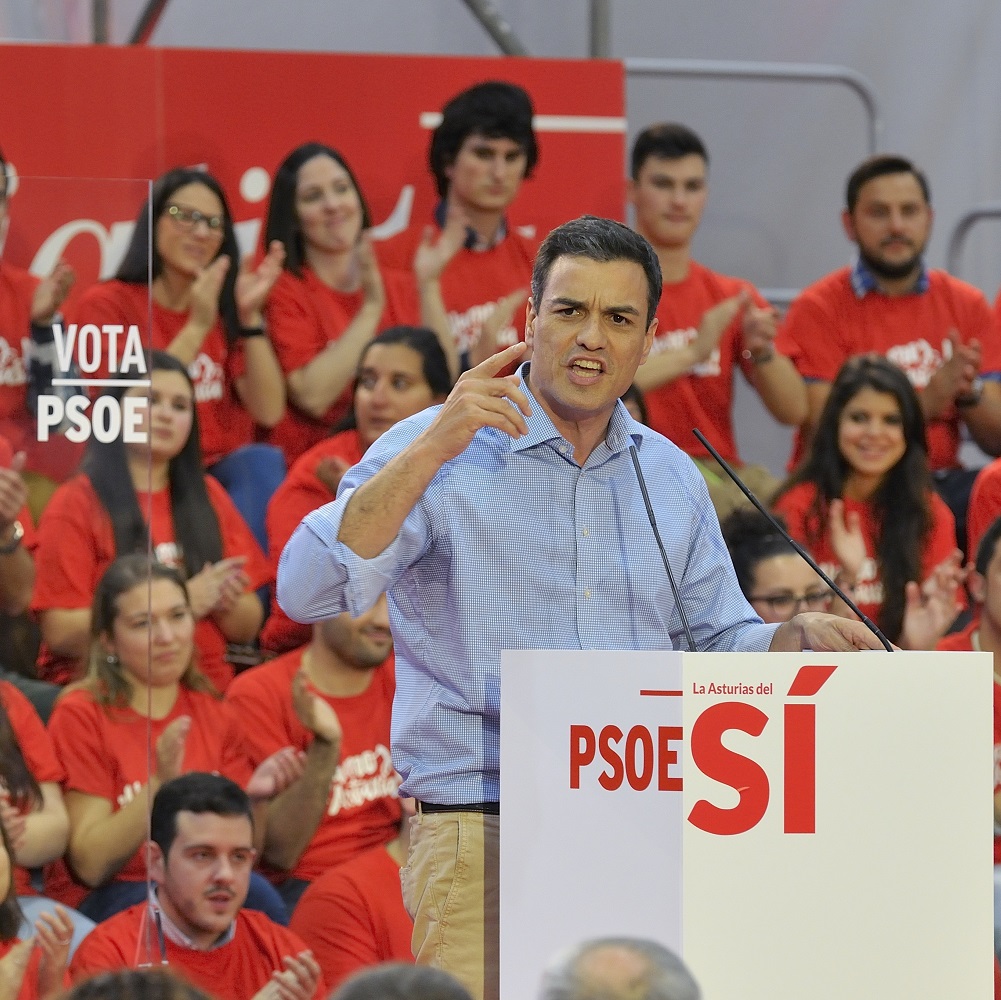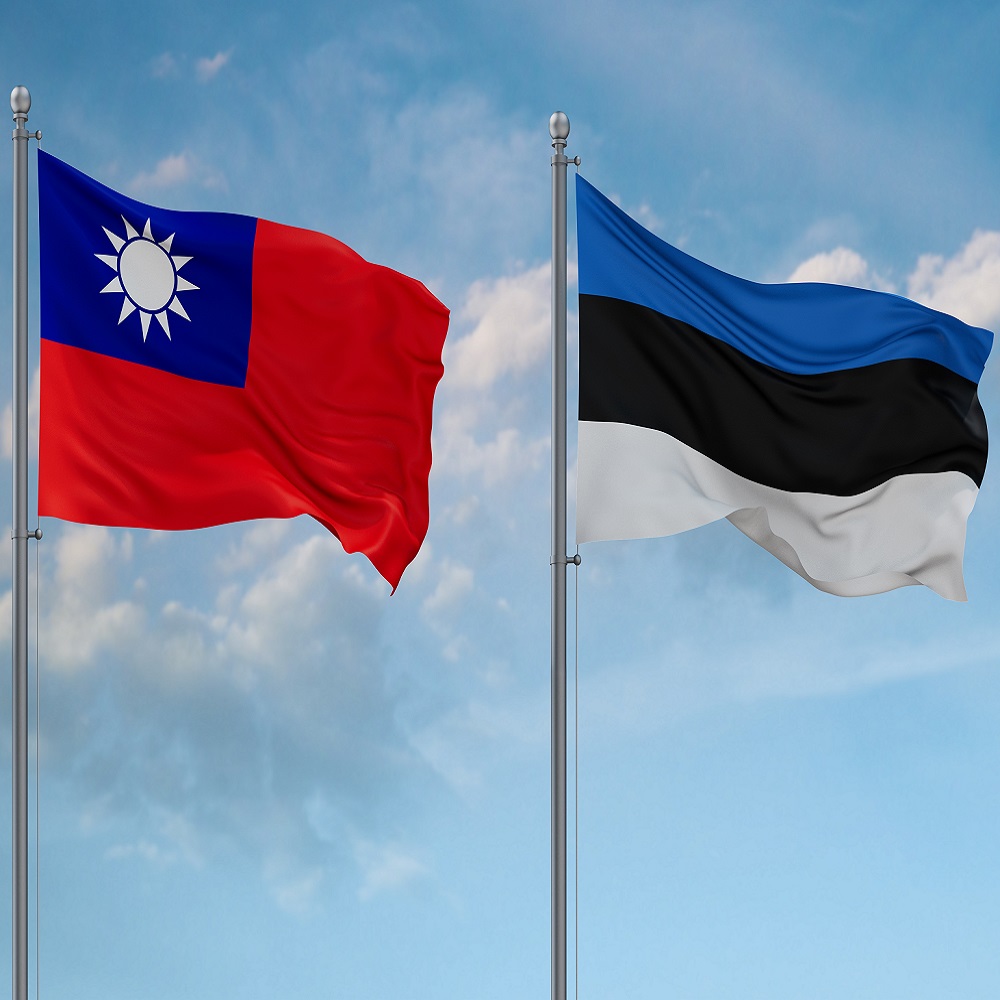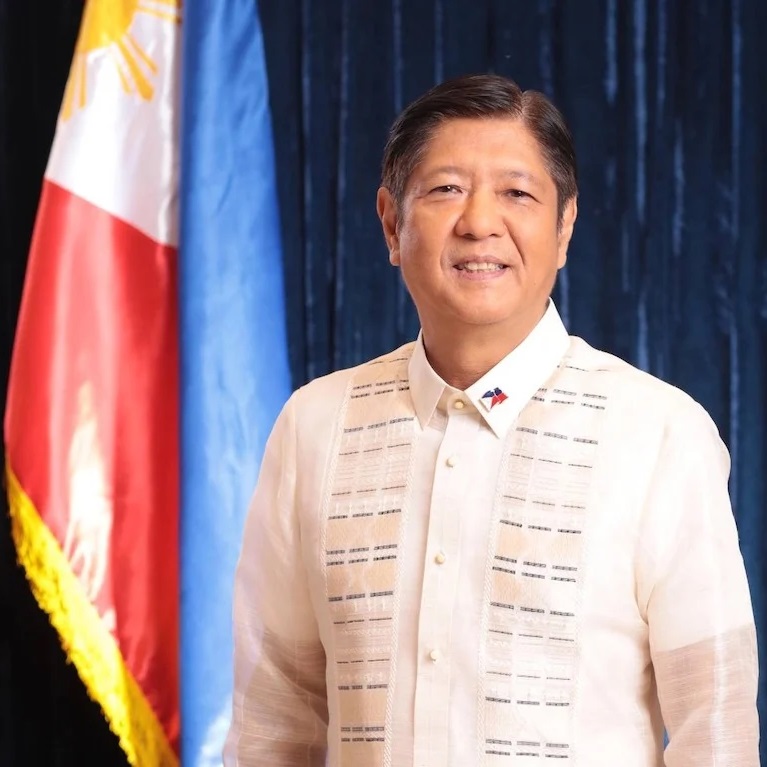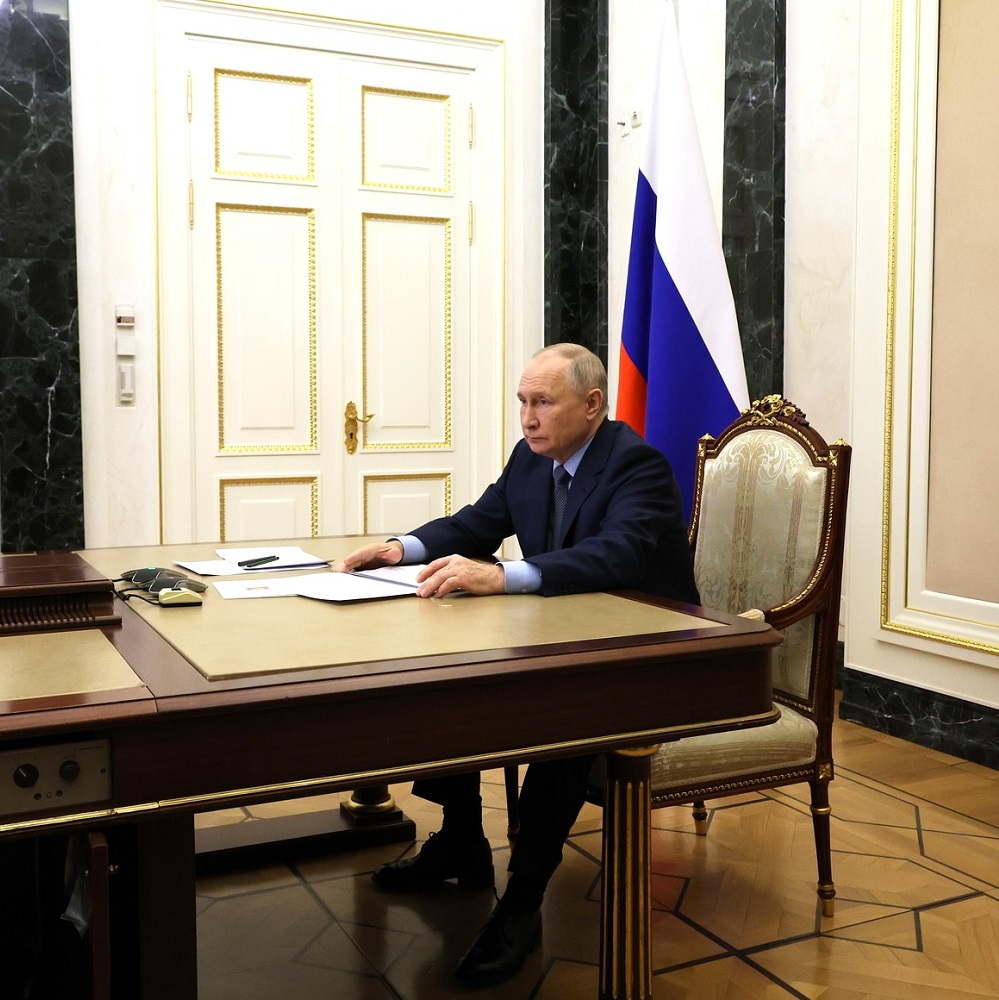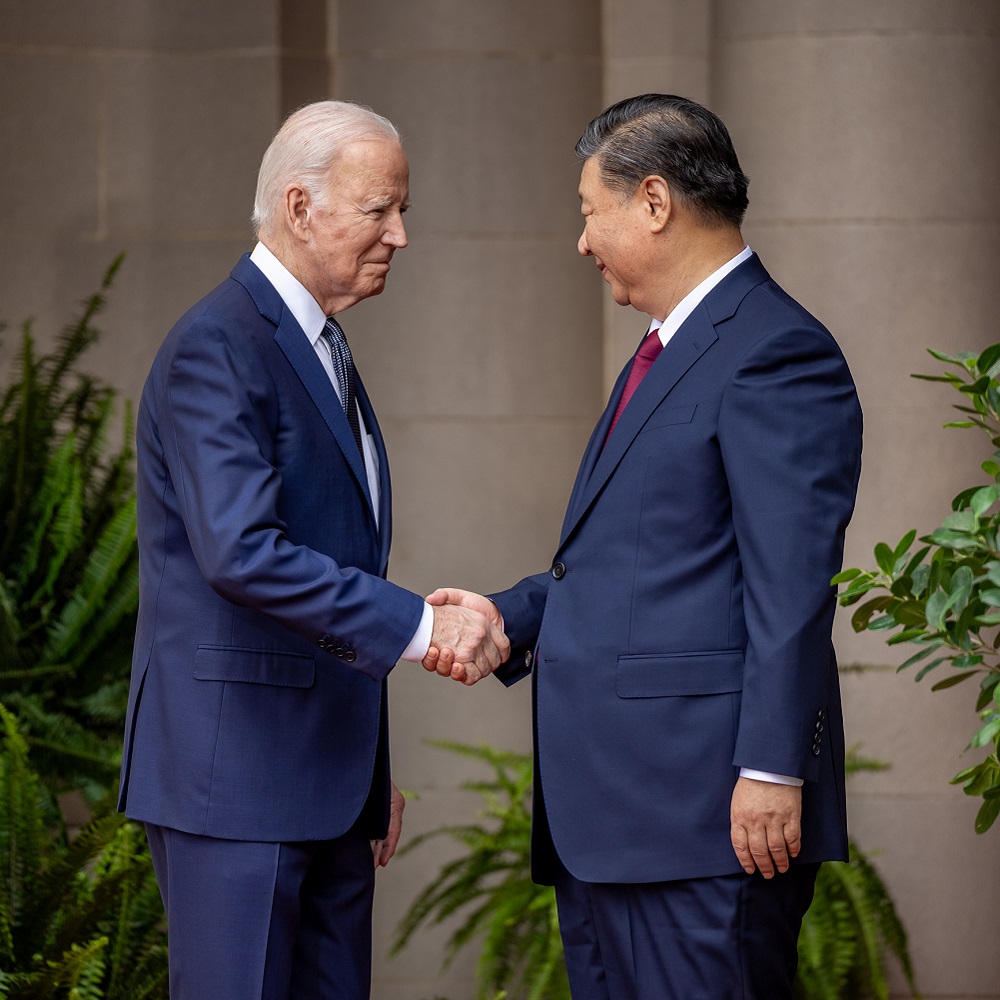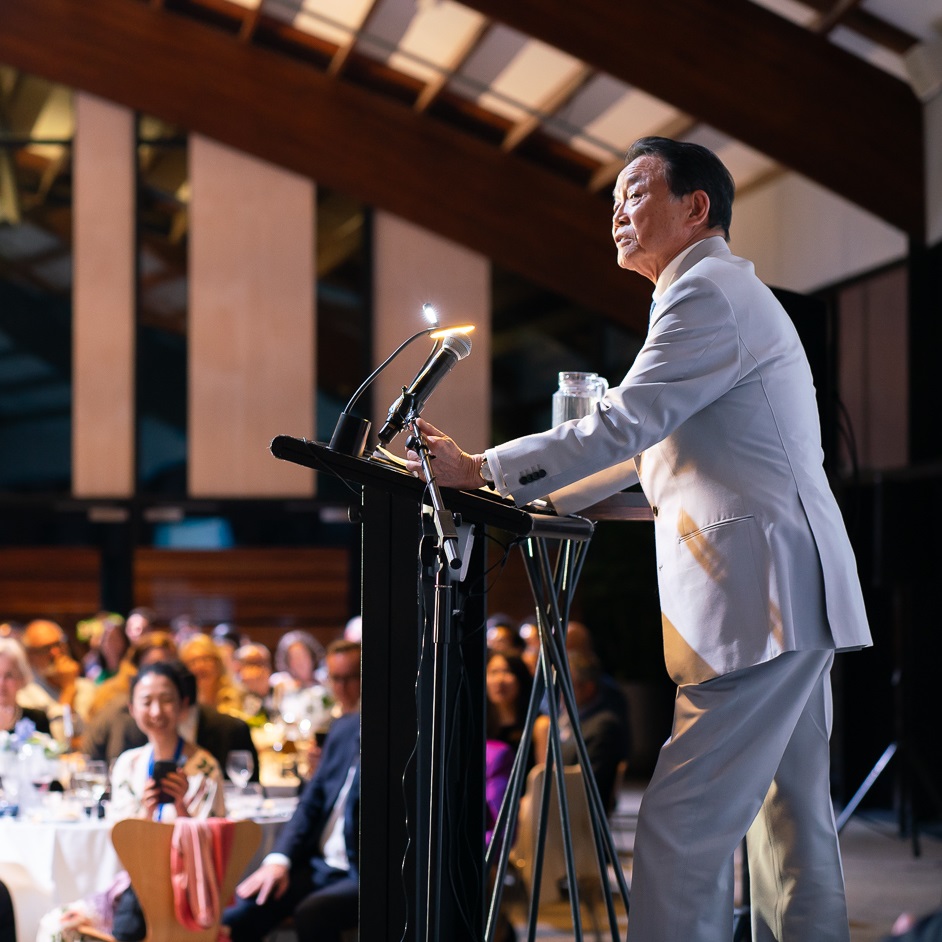
Is JAUKUS a Politically Viable Option in Japan?
by Aurelia George Mulgan
Former Japanese Prime Minister Taro Aso is an outspoken advocate of Japan’s joining AUKUS – as reflected in his recent speech in Canberra to the AIIA. He also has a record of hawkish comments on Taiwan, but how much influence does he wield within the Japanese government and in his own party? Vice-President of Japan’s ruling Liberal Democratic Party (LDP), Taro Aso, was typically outspoken in his speech to the Australian Institute of International Affairs Gala Dinner in Canberra in November, advocating that Japan be added to the AUKUS group. Not only did he claim that Japan’s participation in AUKUS would “contribute greatly” to Australia’s moves to strengthen its submarine capabilities, but he also advanced a strategic argument to justify his position asserting: “Australia is a clear choice” as a new ally for Japan in countering China. He reasoned that as China was out “to control the second line of islands (from Japan’s Izu Islands to Guam) with its maritime power,” this would serve to restrain US naval activities in the region, hence the need for more cooperation among Japan, Australia, and the United States. While explaining that the establishment of a group called “JAUKUS” was “his personal idea,” Aso also argued that it would be “symbolic” and would “send a message” to deter China. He added that Australia and Japan could build allied relations (domei kankei) based on three commonalities: they were both located on the same “vertical line” in the Pacific Ocean; they shared the same democratic philosophy, and they were both US allies. If the three countries were to join forces, “US deterrence in the Indo-Pacific would be doubled, tripled, or even quadrupled.” Japan’s joining AUKUS would also “allow the United States, Australia and Japan to speak with one voice to signal their opposition to a change of Taiwan’s status through force.” Aso has a record of making hawkish comments on Taiwan and a reputation for being one of Taiwan’s strongest supporters among Japanese politicians. In early August 2023 he conducted a three-day visit to the country – the highest ranking LDP official to visit the island since 1972 when Japan officially severed diplomatic ties. The objective of his visit was to underscore Japan’s support for Taiwan by holding talks with President Tsai-Ing Wen and other senior politicians as well as discussing regional security issues, semiconductor supplies critical to the Japanese economy, and other issues relating to economic security. At Taiwan’s Foreign Ministry Aso delivered a lecture on Japan’s defence policy and in a keynote speech at a security forum in Taipei, he argued that “Japan, the United States and other likeminded countries making it clear that they would be prepared to go to war to defend Taiwan…[was] the best way to deter a Chinese invasion.” He declared: “Friendly nations must be prepared to defend the island in the event of a Taiwan emergency….Beijing needs to be convinced that if push comes to shove, we will use our defensive capabilities to defend Taiwan….[adding] Clearly conveying that intention to the other side will serve as a deterrent….for Japan, Taiwan, the United States and other like-minded parties, displaying the resolve to fight will serve as a strong deterrent.” While his remarks appeared to be out of sync with the Japanese government’s “strategic ambiguity” on its response to a Taiwan contingency, Japan’s Mainichi newspaper claimed that Aso had consulted in advance with the Prime Minister’s Office (Kantei), Japan’s Ministry of Foreign Affairs, and the National Security Secretariat about what to say in his speech. Pointing out that Aso was Prime Minister Fumio Kishida’s so-called “guardian,” and that the LDP political heavyweight had played a key diplomatic role in the Kishida administration, the newspaper interpreted Aso’s message as a “carefully worded” warning from the prime minister that although Tokyo was strongly committed to pursuing bilateral reconciliation with China, it had no intention of compromising when it came to national security, including on the issue of Taiwan. These remarks echoed Aso’s clear statement in July 2021 when speaking at an LDP fundraising event as deputy prime minister, finance minister, and member of the National Security Council. He argued that “If a major incident happened [in Taiwan], it would not be strange at all if it touches on a situation threatening [Japan’s] survival. If that is the case, Japan and the U.S. must defend Taiwan together.” In January 2023, he had also called for a drastic strengthening of Japan’s defence capabilities, pointing out that if China were to invade Taiwan, the result could be a military conflict on Japanese territory, including Okinawa, and emphasising to the Japanese public that “one must defend one’s own country.” In his words, “In the event of a Taiwan contingency, it is only natural that the flames of war would fall on Japanese territories close to Taiwan, such as Yonaguni Island in Okinawa Prefecture.” In June 2023 Aso had also met with the Taiwanese Vice-President Wen-tsan Cheng during the latter’s visit to Tokyo where they discussed East Asian security, including the Taiwan situation. In terms of policy standing Aso wields influence as a former prime minister, deputy prime minister, and finance minister, and in terms of political authority wielded within the LDP, he has served as chairman of the party’s Policy Affairs Research Council – its highest policymaking body – and is currently vice-president of the ruling LDP as well as being the leader of the third largest faction in the LDP – the Shikokai. He also ranks second to the LDP’s secretary-general among the top six LDP executives who meet most frequently with the prime minister. He was one of a group of top LDP executives that Prime Minister Kishida consulted in early December 2023 about when to begin collecting the higher taxes necessary to finance a bigger defence budget. Aso, however, opposed the option of submitting legislation to the Diet that would set a schedule for legislation to raise taxes to fund the planned increases in defence spending. Moreover, he will not stay on as LDP vice-president when his current term expires in September 2024. However, having now reportedly “given up” on Kishida and looking to elect current Secretary-General Toshimitsu Motegi as his successor, Aso is endeavouring to remain the “kingpin” in a post-Kishida administration. At the same time, Aso’s views on JAUKUS are far from reflecting a consensus in his own party. In a domestic political context, the option is currently non-viable. Support for Japan’s participation in AUKUS extends no further than a few key figures in the LDP such as Digital Affairs Minister and possible successor to Kishida, Taro Kono, who has expressed strong support for Japan’s participating in AUKUS. Kono was one of the candidates in the race to become prime minister in October 2021 (a month after the launch of AUKUS), and when asked whether Japan should also seek to build nuclear-power submarines with assistance from the US and UK, he stated: “As a capability, it is very important for Japan to have nuclear submarines.” For the time being, however, far from support for the AUKUS option, there would be active resistance from within the LDP led by Kishida against Japan’s participating in AUKUS Pillar One – acquiring nuclear-powered submarines. As long as Kishida is prime minister, he will continue to promote the cause of nuclear disarmament and non-proliferation given his well-known “nuclear allergy,” reflected in his 2020 book entitled Toward a World Without Nuclear Weapons [Kakuheiki no nai Sekai e]. In early December he also vowed to “exercise leadership for the abolition of nuclear weapons” at a meeting of the International Group of Eminent Persons for a World without Nuclear Weapons held in Nagasaki. Moreover, Kishida believes strongly in maintaining a segregated framework of bilateral security relations with each of the AUKUS partners. In the short-to-medium term, the only politically viable option for Japan might potentially be to participate in the expanding field of so-called AUKUS Pillar Two hi-tech, military technology-related capabilities such as artificial intelligence, quantum technologies, hypersonic and counter-hypersonic capabilities, electronic warfare, defence innovation, and undersea capabilities. The Japanese government, for example, is currently promoting the development and use of autonomous underwater vehicles.









